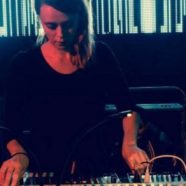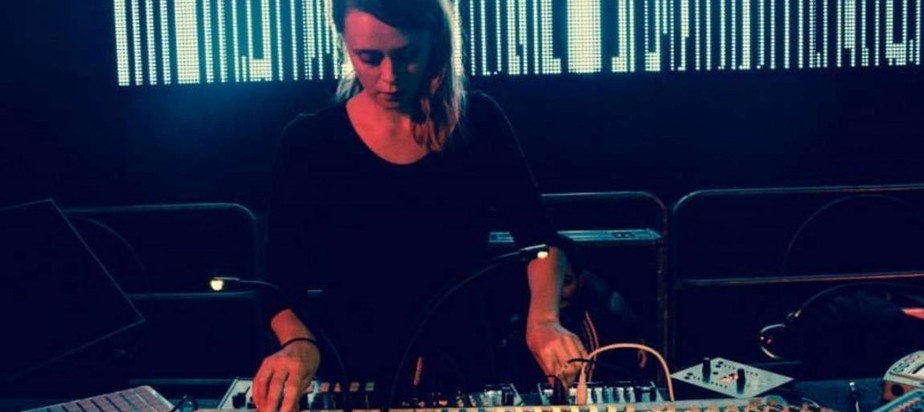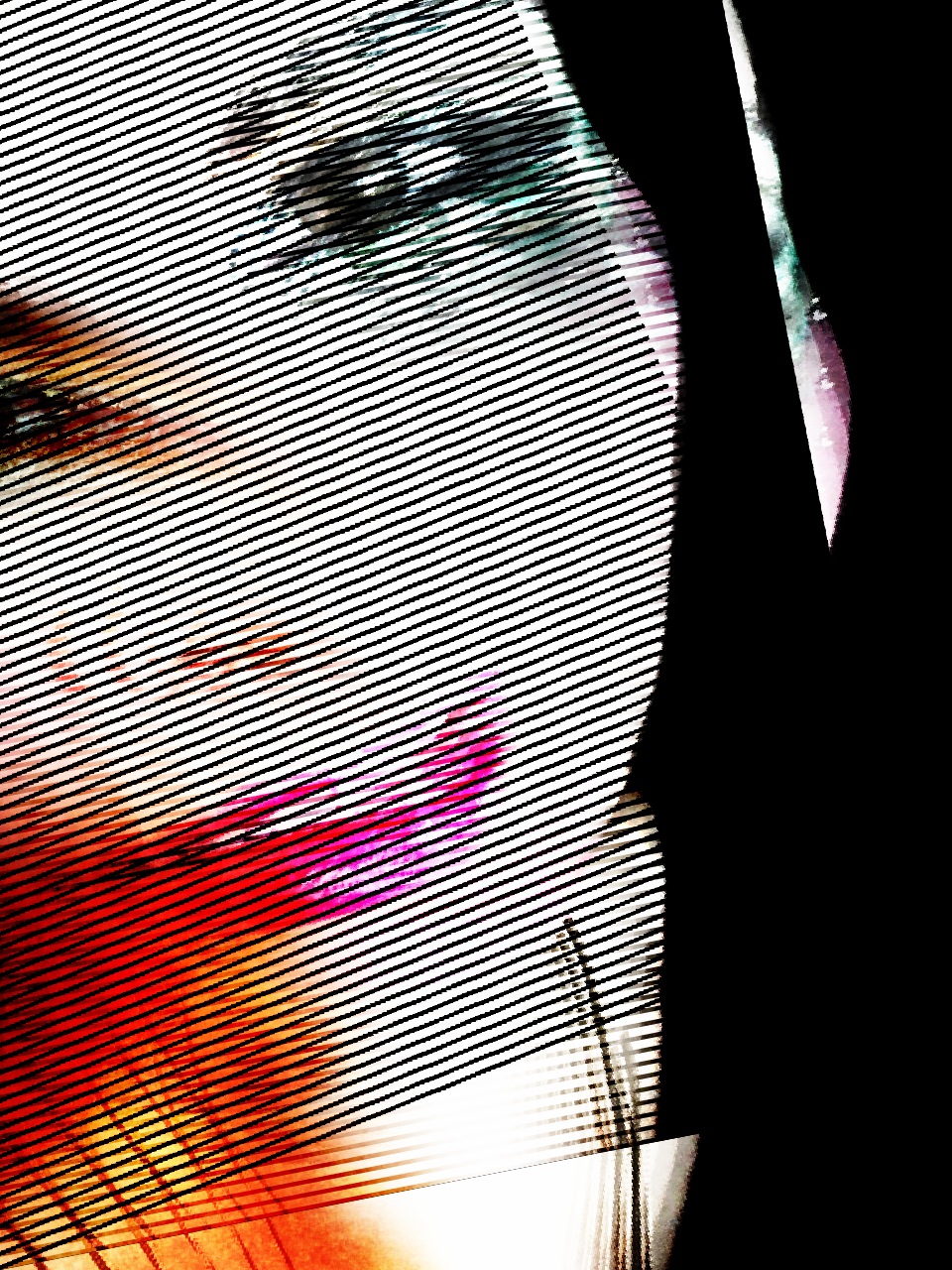Dasha Rush Interview
Last year I got the opportunity to attend Mutek Montreal and interview Dasha Rush. I’ve been a huge fan of hers for several years now. She is the consummate artist, exploring a fascinating range of territories in her work with innovation and style. She performs live and DJs, and also does a live A/V performance. Her styles of composition range from dark dance floor techno to experimental electronica with spoken word. She heads up 2 successful record labels, Full Panda for the more rhythm oriented work, and Hunger to Create (on the same website) for things of a more of an experimental nature. Her touring schedule is relentless and this year she’s back at Mutek Montreal with 2 performances. In the interview we discuss her musical process and songwriting techniques, and the value of simplicity in creative work, as well as a bit about her personal experiences in the electronic music industry. We start out with some technical questions about her setup. Thanks for reading!
Femmecult:
When you began making music, did you get started with gear or software?
Dasha Rush:
Software. I mean there was a bit of gear but it was software and I didn’t have any of my own in the beginning, of course. It was from friends.. and people who were lending me things to try out, but yeah I started with Cakewalk and sampling things, usually with samples and then I used Fruity Loops for a while and then slowly developed try different things. I still partially use hardware, but mostly software.
Femmecult:
I’ve seen some videos of you working with modular synth.
Dasha Rush:
I’m not really into modular synth. I’ve tried and I have interest but it’s not like something that I do now. Now it’s developed way more and it’s getting interesting, but at first it was a little bit of a nerdy community, like ‘oh girl…whatever what are you doing here?’ so I don’t think so, it put me off a little bit. I was like ‘oh whatever! Just do your thing, I’ll keep on doing mine’. I am not really working with modular. I mean I use a lot with Reaktor and it’s kind of a similar thing now.
Femmecult:
Do you build your own Reaktor ensembles?
Dasha Rush:
I’ve tried.. not anymore… I realized it took so much time to do it, that I stopped doing music and I asked myself do I really wanna do this, or do I really wanna do music? And so I stopped doing it because I have so many friends that are doing this, because they just like to build things. They are not really musicians and I’m kind of like they should do it, and I should do music, because I actually wanna do music not build things… but I’m still curious to build…
Femmecult:
There’s this kind of idea floating around in some circles that if you can’t do everything, if you can’t build the modular synths, and write the songs too then your work is not as relevant.
Dasha Rush:
Nonsense! I think for everyone it’s different.. if you like to build things and make tracks it’s fine, why not, but then it depends which process you enjoy more. If you want to do everything, you do everything. I don’t think there is a rule to it, or it should be framed or thing. I don’t think there should be boundaries around it, and all this snobbery… like ‘oooh modular, oh you use software it’s not good enough, oh you don’t have a modular… it’s nonsense.’ The main thing is what actually comes out of whatever you do. You can make with a counter and forks and still sound great. I’ve seen in Africa people build up their own things with aluminum cans and they sound great. There is an energy and emotion in the simplest things. It doesn’t have to be complex to be beautiful or good, or touch people. It doesn’t have to be super technological either. You know, if you are interested why not, but there shouldn’t be boundaries. And especially I think like emotion is simple in a sense; it doesn’t need a complex structure. Even I look at you, and if I’m angry you are going to feel it. I can express it simply. I can express it with one note if you like… so it’s a lot of blah blah about this. You know another kind of thing people should do if they feel like it? Just be just sincere… it’s not a problem.
Femmecult:
Let’s talk about the songwriting process a little bit. I’ve heard from many musicians that once they get going on a song, it just kind of writes itself. But that’s not always the case. So do you have some techniques if you ever encounter writer’s block, or a creative block, where to go with something?
Dasha Rush:
With me, I come always with the idea, the idea that I would like to express. Even if it sometimes is unclear and unformed. I need something, I need a subject. At least a relative subject that i can work on, and that’s how I work. So basically first, I have an intellectual or emotional idea, whatever you wanna call it, and I try to express it through my work, through the sounds, through the composition, and sometimes in the process itself it takes a while because I really search for something particular. Or sometimes while searching, find something else and my idea could morph a little bit, so there is no rule to it. For me, there is no precise kind of structure how it’s supposed to be. The only important point in my personal process is that it comes from the initial idea. it But technically it comes with very different procedures, sometimes I wanna search for this particular thing, and I have it in my head…and sometimes I just wonder around..and then something comes..
Femmecult:
Techno can be really repetitive. and so when you are listening to the track over and over doing arrangement, do you find that you have to restrain yourself from changing too much, to make too much variation. How do you create subtle variation?
Dasha Rush:
That’s more by the feeling. You do it and you feel oh this is right. There is no calculation…oh for some people yes, obviously. But I think if you wanna have this sincere part, you just feel it. And then of course, technically, you can think of how you could make it better, but I think there’s this saying that says, you can never finish the track, you can just stop doing it. And that’s a lot about techno for some reason. You can always change or add, but you just have to stop when it’s closer to what you kind of felt, or wanted to express, and then just leave it.
Femmecult:
Do you have any experiments with different types of arrangements, like starting songs very experimental then moving to techno then moving something more like cold wave, for example?
ARTIST:
I don’t think that way. For me, it’s a subject. It’s not a style. If i have a feeling and mood, if something inspired me, some nostalgic 80s or 90s, then things can come, but I don’t have a predefined stylistic part. It comes naturally. It’s not calculated. I can’t say ok, ‘I started experimental and went to techno’. I can do this with the DJ mixes, more collage type podcast or mix.
Femmecult:
How does your DJing compare to your live performance, in terms of how it makes you feel and how you think the audience responds?
ARTIST:
Well DJing is mostly oriented toward a dance environment, but I think live is just way more personal. way less compromising. It’s just a different field of things. With DJing you still work with other people’s music, and you can variate… with live, you have an idea and you just follow that idea. Still it’s a different procedure and different environment. It’s hard.. both are interesting. Working with other people’s music is nice because you interpret it, and are doing something else with it. There’s a piece of someone that probably has a story for themselves, and then there is your perception and then when you mix together other pieces it creates a certain thing completely different. I think live is way more personal and in some way, more intense …it’s a personal experience. But it’s just more easy entertainment to DJ. You don’t have to really think. Playing live is more about something you can dig deeper into, and express or evolve different subjects than a DJ set.
Femmecult:
Do you get booked more for DJ or live PA performances?
ARTIST:
It depends. I don’t really wanna play live in the clubs so much. I don’t really wanna do techno live, I would prefer to do an experimental live set, or some performances, and then DJ in the club. But, for example, I love Tresor and I always play live there because I know there, I can just raa! do anything and people will kind of you know…it’s just the place. Berghain is also really nice, and a few other places, but I would prefer to do live sets with a concept sitting down.
Femmecult:
What are the elements of improvisation in your live set?
Dasha Rush:
For this one is not so much because it’s a very composed piece completely with each scene having a story. So of course in the scene I have a little improv. I always leave a space to improvise. It’s important to surprise yourself. Sometimes, it can fall apart badly though. I can’t really define it, but let’s say 50/50 you know, but sometimes more or less. And also technically I find it a little bit difficult now, because I was bringing all this equipment before, and less and less venues adapted. Like festivals it’s ok… but like clubs and stuff no…that’s why i don’t wanna play live so much in clubs. There’s always not enough space, so I have to minimize minimize minimize… I have this new equipment, I like to use it, but I tried to minimize, it’s just the environment of the clubbing thing. They are just not adapted to live anymore because everybody, not everybody but a lot of people, minimize, just laptop and a little controller and it’s fine. Actually what I do today is a different story, but for like the techno thing, you can amuse yourself and just play. Promoters, and sound people are like ‘oh 16 channel too complicated we don’t have space, but we want live! Can you play with just a laptop?’ Then, what’s the point? You know.. Then I DJ, it’s great too. So it’s a different aspect of these things.
Femmecult:
Also it might affect the sound if you bring all this gear and it sounds one way in studio and then live it’s different or not as dialed in.
Dasha Rush:
That’s difficult. Last week I was playing in Bahrain and my plane was delayed and the other was delayed, there was no sound check. I set up while the DJ was playing, and a very quick soundcheck and they put the live PA mix into the DJ mixer, and I am like what is going on?! You couldn’t change it. I started and I just did it, but I really I was like why am I doing this? It was stressful, and I didn’t get into it. I couldn’t concentrate because I was always checking the levels and I mean the guys were very nice, and they realized the mistake. Never plug the PA mix to the DJ mix! It’s the opposite.
Femmecult:
Is there anything about the music industry that you find really rewarding or challenging?
Dasha Rush:
Now that everybody can make music that’s a great thing because it’s not a monopolized world with one or two labels. To really stay sincere and express what you want to do and connect with some people, is very challenging sometimes. I think if people understand and react and are interested in what you do, it’s very gratifying… and I think for every person it’s more or less important because we all want to share the human thing. We feel a certain existence when at least one person understands. Like ‘oh I understand what you do, you know it does touch me.’ It’s beautiful, it’s challenging too, to actually connect with people in that way.
Femmecult:
What do you think about the idea that there are not enough women involved in electronic music. Do you have an opinion on why this is?
Dasha Rush:
I do. There are several things I think. Some women, for some reason, they just don’t dare. And some dare, in a very strange way, which is coming from I guess still a western way.. In this male patriarchal society, sometimes the women try to please the men. You know what I mean…. their approach is that way. The women try to please the men– and the perception of a man. And that’s wrong. I think women should say ‘fuck off’. I do… it’s what I do. If I wanna be beautiful I will, if I don’t wanna be beautiful I don’t wanna be beautiful. Whatever… beautiful in the sense of an image..like you wanna be beautiful for yourself, and how you see, not just because you want the boys. I mean of course somewhere behind very deep, we are still female and male, and we like to impress each other physically, but in this kind of creative process, the approach… the fact that some women I know, colleagues, try to seduce a man in a primary way.. I don’t know how to explain, but there is this fact that some women don’t dare, but not all women.. I think more women are coming out and it’s nice, because women are more nice and instructing. Of course that’s relative to us too, but there’s something… the psychic part of a woman is sometimes way more interesting than a man, it seems. [laughs]









good interview, thanks!!
I’ve been following this artist for years now and I’m glad to see you do very well